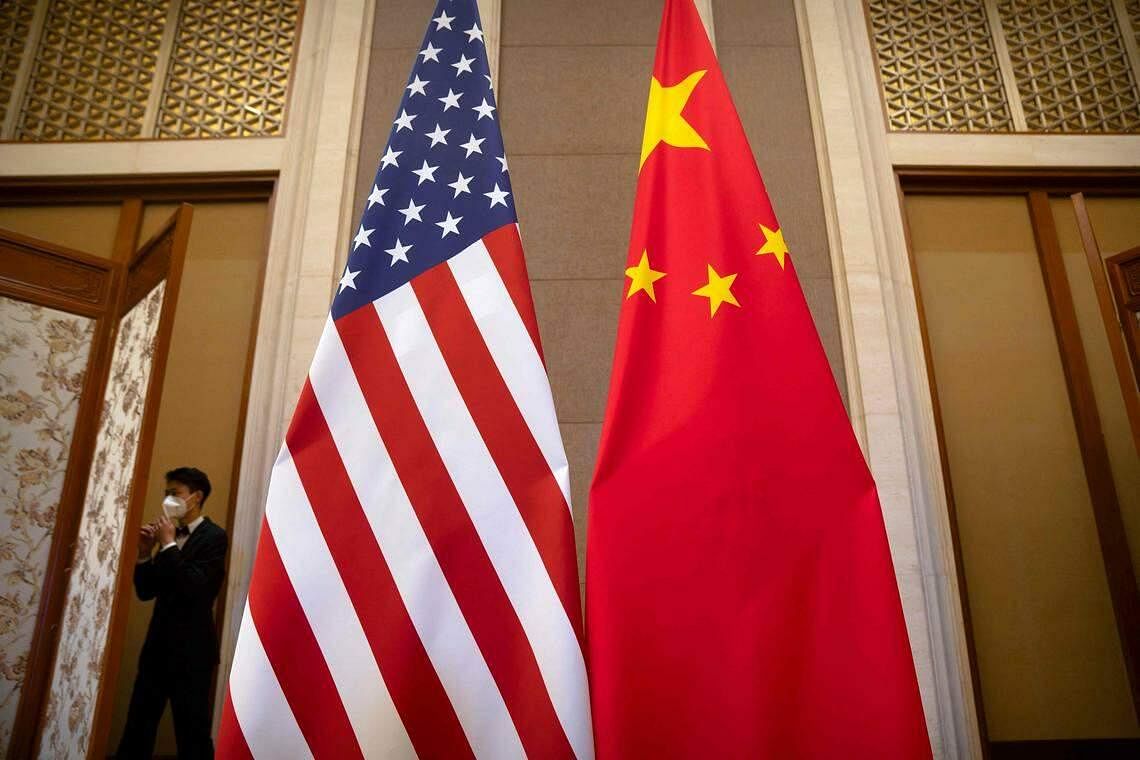ROUNDTABLE PANELLISTS:
- Jimmy Lee, member of the executive board and head, Asia, Julius Baer Group
- Jeffrey Yap, head of investments and wealth solutions, South-east Asia, HSBC Global Private Banking and Wealth
- Foo Tian Ong, regional head for South-east Asia and Singapore location head, private banking, Standard Chartered
- Joseph Poon, group head, DBS Private Bank
Moderated by Joan Ng, The Business Times
GLOBAL equity markets are off to a good start this year.
The MSCI World Index has risen over 8 per cent, the S&P 500 is up more than 10 per cent, the Euro Stoxx 50 has gained over 12 per cent, and the Nikkei is up over 20 per cent.
Confidence has been driven, in part, by expectations that the United States Federal Reserve will begin cutting its benchmark federal funds rate this year, and that the European Central Bank will do the same for its own key rate.
Lower interest rates will make fixed-income investments less attractive, and push investors to move more of their cash into higher-risk investments such as equities.
This rosy picture, however, may yet be disrupted by several events.
“Financial markets are inherently complex, with numerous dynamic elements at play,” said Jimmy Lee, member of the executive board at Julius Baer Group and the bank’s Asia head.
“Various scenarios have the potential to reshape the market landscape, emphasising our inclination towards quality segments.”
The Business Times spoke to four private banks on potential disruptive forces for the market this year.
Here are the themes they highlighted, and the advice they are giving their clients..

1) Economic weakness could upend markets
Foo Tian Ong: The market is expecting inflation to come down, and when that happens, central banks may react by cutting interest rates.
Some countries may slip into recession, much as the United Kingdom fell into a technical recession in the fourth quarter last year.
No two countries are alike, of course, and every country will see inflation start to ease at different periods and at a different pace.
This differentiation, coupled with recessionary concerns, may directly impact equity, fixed income and foreign exchange markets, with knock-on effects in other asset classes, such as commodities.
There will also be an impact on economic growth.
All these factors need to be dynamically assessed and evaluated to determine the most appropriate opportunities and wealth solutions for our clients.
Despite these potential risks, however, prevailing optimism suggests confidence in the overall economic outlook.
Jimmy Lee: We do not foresee a recession in the US. Nevertheless, there is a possibility of emerging cracks in the labour market that could hamper growth prospects.
Any recession in the US would likely reverberate across other economies. US elections are a key event to watch out for.
In our base-case scenario, we anticipate a peak in long-term yields as well as a soft landing of the US economy in 2024. Overall, we see the year as a good one for US equities, with the best returns potentially materialising in the second half of the year, when monetary policy becomes less restrictive.
Yet, keeping in mind the uncertainties, we recommend maintaining exposure to quality stocks. Our preference lies towards quality growth stocks in the IT and healthcare sectors.
Regarding currencies, the US dollar has been appreciating for 14 years. In 2024, we expect it to remain range-bound – it will continue to trade within a relatively tight price range.
In the fixed-income space, we recommend locking in the current attractive yields with quality bonds. The quality segment offers returns comfortably above expected inflation levels. We lean towards US dollar-denominated investment-grade bonds.
China remains an area of concern, as it grapples with structural challenges in its economy. The trajectory of growth and inflation in 2024 remains uncertain.
The ripple effects of developments in China could extend globally, particularly affecting economies closely intertwined with the Chinese market. The effectiveness of forthcoming stimulus measures by the Chinese authorities remains to be observed.
We expect commodity prices to fall at first, and then trade range-bound.
In the copper market, however, rising demand on the back of growth in electric vehicle production and supply constraints in the years ahead could provide a boost to prices.

2) Generative artificial intelligence (AI) is disrupting businesses
Jeffrey Yap: Generative AI is being adopted at record-breaking speed, with widespread use cases, outpacing the adoption of the smartphone two decades ago.
Generative models, such as GPT-4, are capable of producing human-like text, art and music. This challenges traditional content creation processes and opens new avenues for creativity.
Generative AI can also automate tasks such as text summarisation, language translation and code generation, which accelerates productivity across many industries.
With the right applications, businesses can streamline processes, reduce costs and improve scalability in the most efficient way.
Generative AI disrupts existing norms, reshapes industries, and prompts critical discussions about how businesses and society would operate in the future.
But generative AI systems consume four to five times the energy required for conventional web searches. Cooling processors and generating the electricity needed for AI models to function require enormous amounts of fresh water, which is unsustainable. Balancing innovation with environmental responsibility is crucial.
The focus of investment opportunities in this space has largely been on the providers and enablers of AI systems.
An investor could broaden his scope by investing in companies that effectively adopt and apply it to achieve scalability and efficiencies.
For example, while it is true that AI systems may contribute to negative climate impacts, their applications can also enhance renewable energy systems, accurately predict weather conditions, and optimise renewable power generation.
Investors can consider companies working on making generative AI systems more efficient and environmentally friendly, as they will play a crucial role in mitigating these impacts.
Joseph Poon: Because of its proven and potential groundbreaking applications, generative AI has emerged as an important investment theme that we have advised clients to embrace in their portfolios.
This is consistent with our positive view on key secular trends over the past few years. We had earlier advised our clients to get exposure to innovators, disruptors, enablers and adapters, including those in the generative AI sector.
Our focused call on companies that would ride the innovation wave has paid off handsomely for our clients, with US tech outperforming the broader US equity market by 29 per cent in 2023.

3) Climate change is creating new winners and losers
Yap: In 2023, we witnessed extreme weather conditions in many countries across the globe. The global impact of rising temperatures, extreme weather events and rising sea levels demands urgent action.
Climate change affects us all – from businesses to societies and individuals, and its urgency means that governments and businesses will be amplifying their efforts to tackle the risk of climate change.
Investors can look to sustainable finance and investment opportunities that facilitate the transition to a more sustainable world.
Energy is a main channel through which we are seeing positive change and the emergence of new opportunities. Biodiversity has also risen in importance, as has the prominence of the circular economy.
To begin, one can construct a core portfolio through investing in environment, social and corporate governance solutions that align with one’s priorities and values. Where appropriate, investors can also look towards innovative startups that address climate challenges through private equity and venture capital opportunities.
Lee: Climate change impacts our prosperity in different dimensions. The increasing frequency of weather extremes is an economic burden. For example, harvest losses cause inflation spikes and storm damage creates a need to rebuild infrastructure.
Climate policies also stimulate innovation, bringing great leaps forward in productivity. Think about today’s low cost of solar energy, or the smartness of electric cars.
If managed carefully, the energy transition promises a boost to growth, reshuffling fortunes in many ways, including for businesses and even in geopolitics.

4) Geopolitical conflicts bear watching
Foo: The year 2024 is a year of elections, with over two billion people set to go to the polls. This can potentially bring about changes in major markets due to changing trade policies, foreign policies and regulatory frameworks.
The consensus view is that trade tensions between the US and China will continue, heading into the US elections. We also have conflicts ongoing in the Middle East and Ukraine.
While there has been limited impact on global financial markets so far, it is something we will continue to watch.
To navigate the ever-changing landscape and ensure that our clients’ financial needs are well met, we advise them to stay invested, stay nimble and build their legacy for future generations. Staying invested is an important rule for preserving and growing wealth, despite market conditions. We advise investors to use this opportunity to capitalise on market opportunities, allocate broadly, lean to Asia, and manage volatility.
This year could well be turbulent for markets, but volatility brings opportunities.
Staying invested does not mean maintaining the same allocation, though. We advise investors to have a diversified portfolio, and then tactically rebalance allocations to capture opportunities. Our advisory approach is anchored in diversification and staying invested in the long term.
Poon: (The various elections taking place this year) may create some leadership uncertainty that, coupled with the ongoing conflicts in Ukraine and Gaza, may have an impact on financial markets and businesses.
These uncertainties, and their ensuing ripple impact, will create additional volatility for the financial markets as well as unpredictability for regional and global businesses.
Given that two-thirds of our clients/investors are business owners who also manage financial portfolios, it is more critical than ever for wealth managers to not only deliver the return on their capital but also the return of their capital.
Ultra-high-net-worth clients and families who own businesses should seek advice and support from private banks that can offer a one-bank proposition.
This can help address the complexities of succession planning for their business and financial assets (which are intertwined), amid an increasingly fluid geopolitical and evolving regulatory landscape.




